The Impact of Bird Droppings and Lichen on Solar Panels
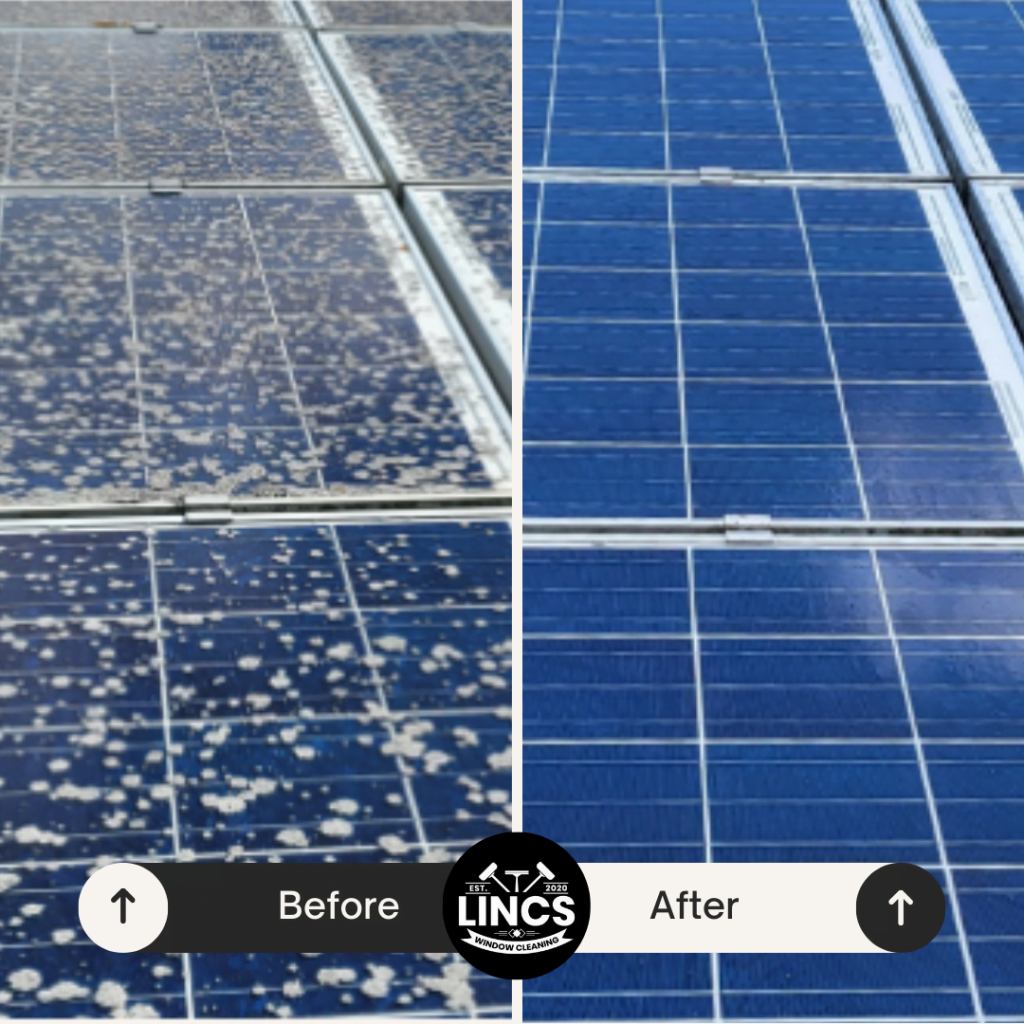
Introduction:
In this blog post, we will discuss the effects of bird droppings and lichen on solar panels. We will also explore the challenges faced by the solar industry in maintaining and cleaning solar panels. The information provided is based on the experience and expertise of Lincs Window Cleaning Ltd, a company specializing in solar panel cleaning.
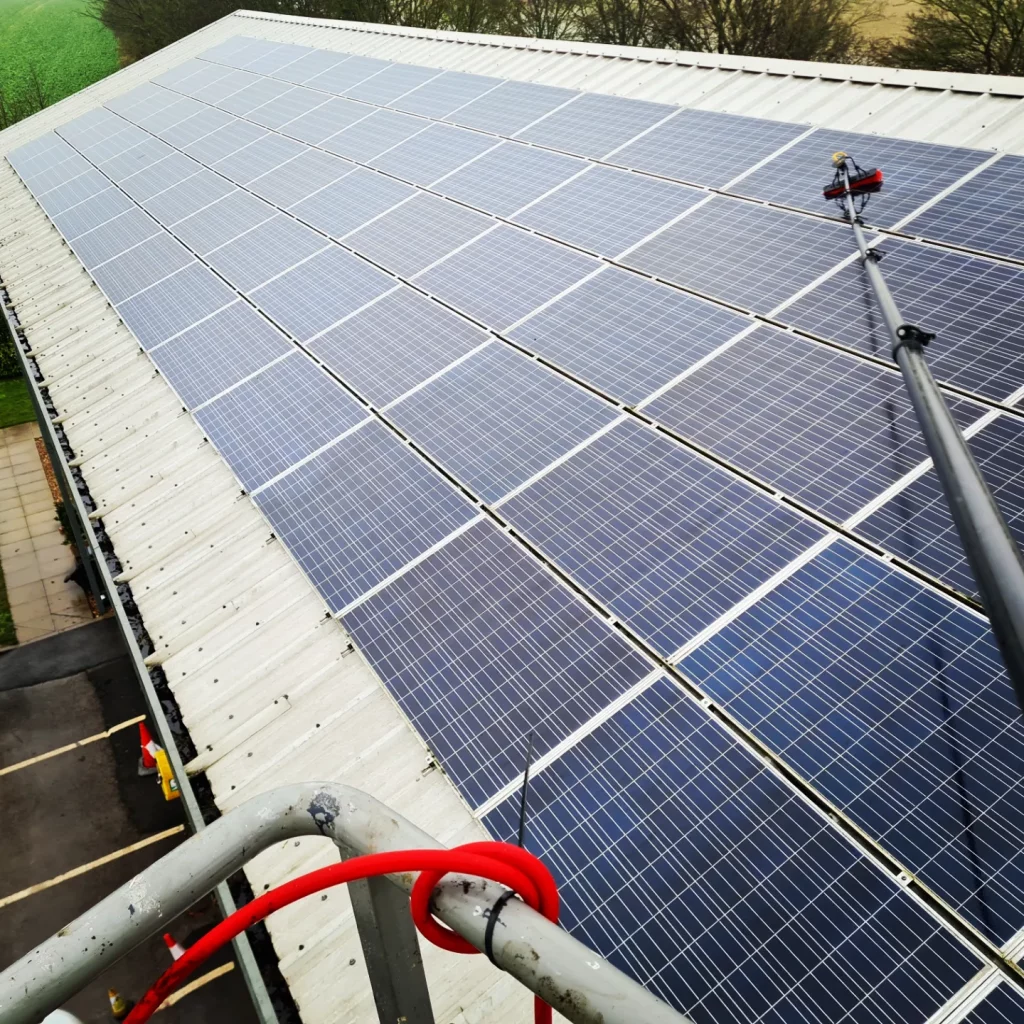
Background:
Lincs Window Cleaning Ltd is a company that has been involved in the cleaning industry for over the years. Unlike many others in the solar industry, their background is not in electrical or farming. In 2011, hundreds of thousands of solar panels were sold in the UK with the claim that they were self-cleaning. However, over time, it became evident that this was not the case. We have been working to spread awareness about the need for professional cleaning of solar panels.
The Effect of Bird Droppings:
Contrary to the belief that rainwater would clean solar panels, bird droppings have a detrimental effect on their performance. The amount of sunlight blocked by bird droppings can significantly reduce the output of the panels. While steps were taken to protect solar panels from bird droppings, the growth of lichen was not anticipated
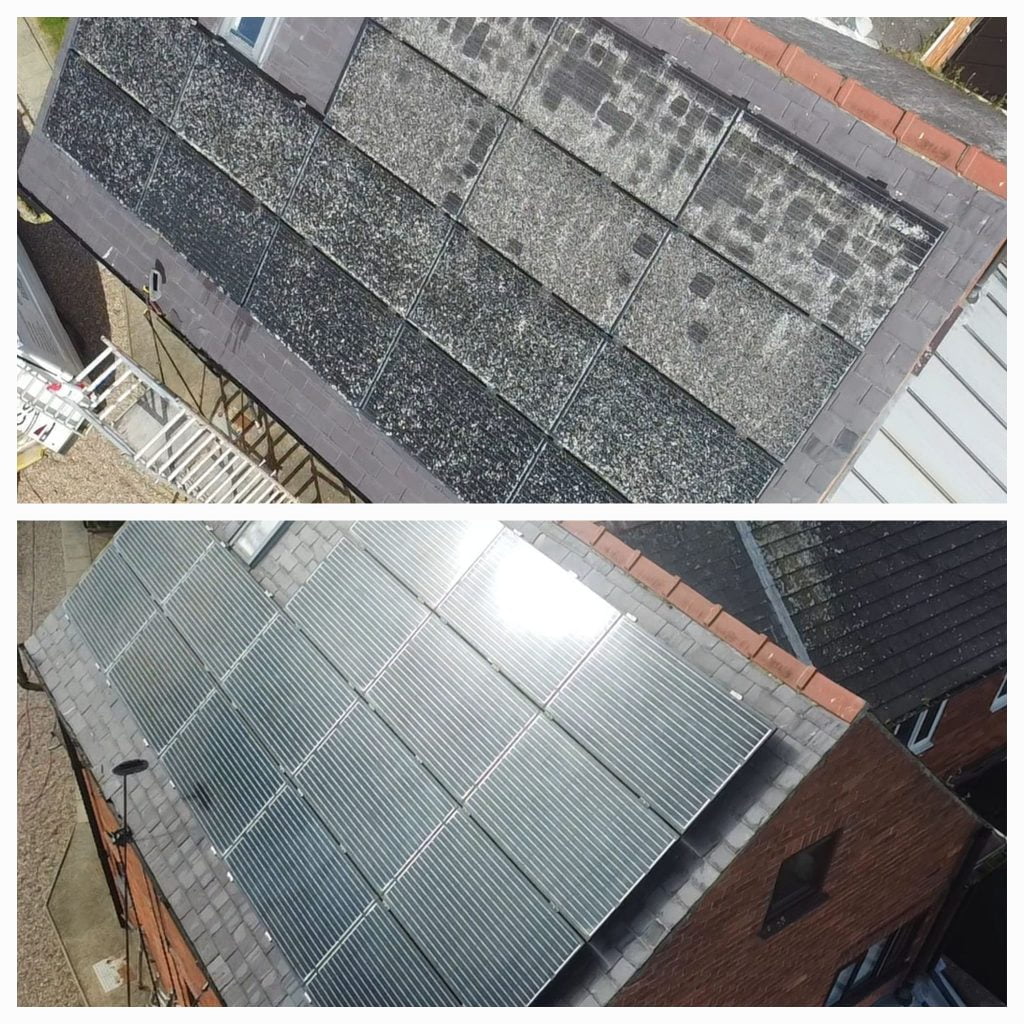
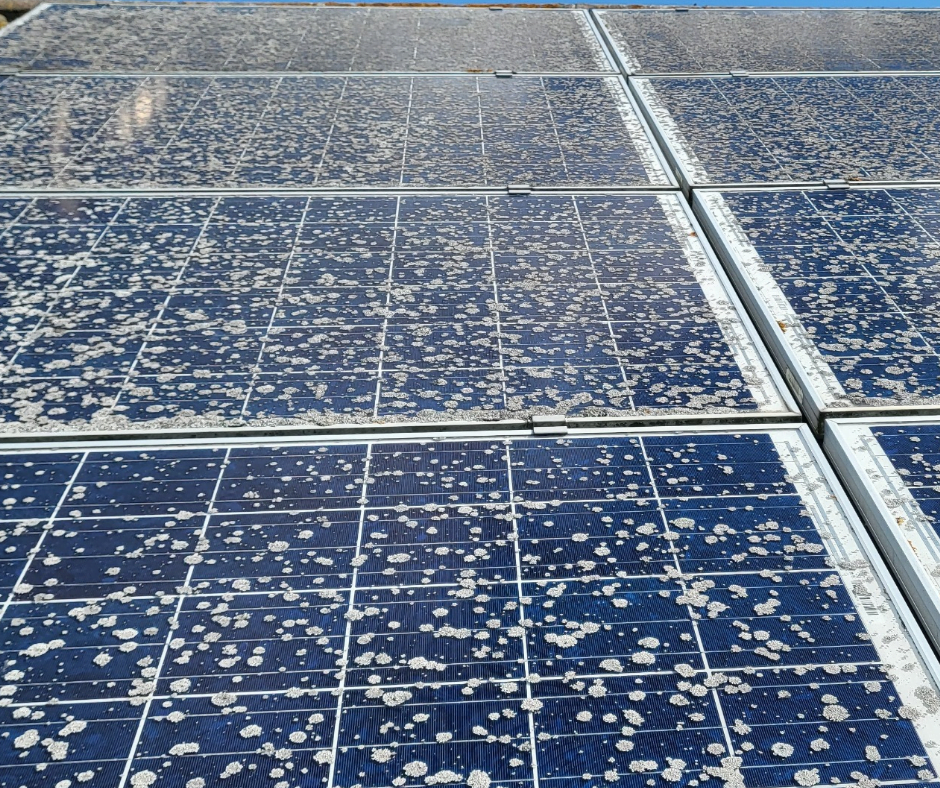
The Challenge of Lichen Growth
In the UK, the damp climate provides ideal conditions for the growth of algae and lichen on solar panels. This was not initially considered in the maintenance contracts for solar arrays. As a result, budgets did not allocate funds for cleaning. The presence of lichen and bird droppings caused solar panels to underperform and decline in efficiency. However, over time, it became evident that this was not the case. We have been working to spread awareness about the need for professional cleaning of solar panels.
The Difficulty of Lichen Removal:
Lichen grows in the pits of the glass surface of solar panels and spreads to the surface. It attaches itself firmly and is challenging to remove. Incorrect methods of removal, such as scraping with metallic materials, can cause damage to the panels.
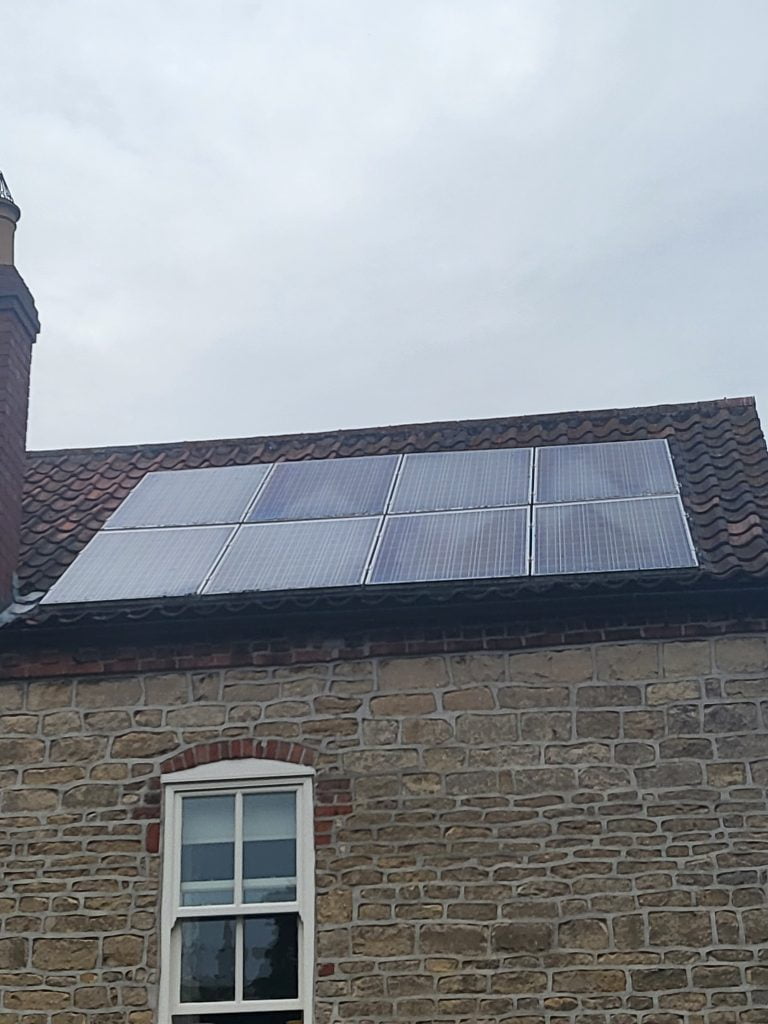
The Impact of Shading:
Any form of shading, including debris, is detrimental to solar panel performance. Shading creates hot spots and reduces the overall output. Thermal imaging of solar panels with bird droppings and lichen clearly shows areas of overheating and failed cells.
Choosing a Solar Panel Cleaning Provider:
When selecting a solar panel cleaning company, it is essential to consider their track record and adherence to warranty guidelines. Some companies may use pressure washing or chemicals that can invalidate warranties. Fair and transparent pricing is also crucial to avoid unexpected costs.
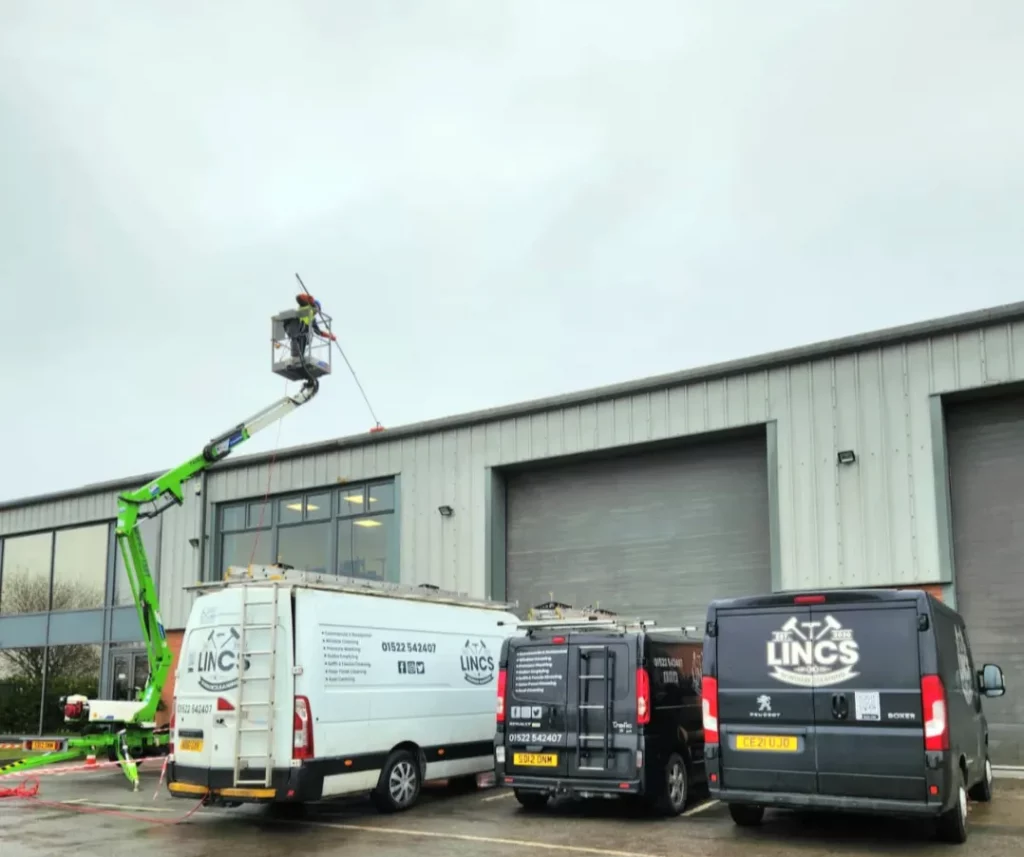
The Importance of Regular Cleaning:
The Importance of Regular Cleaning:
Regular cleaning is the best way to prevent the accumulation of bird droppings and algae, which in turn prevents the growth of lichen. By maintaining the efficiency of the panels, the need for expensive lichen removal can be avoided.